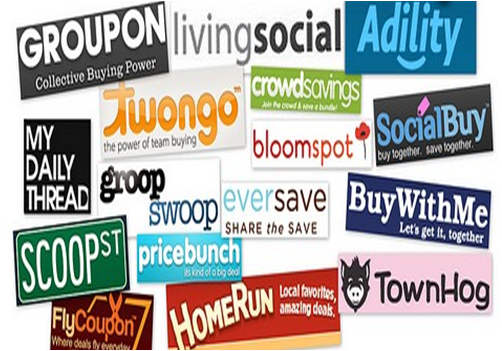Is Groupon a Deal at $5?
Few firms illustrate the highs and lows of internet businesses better than Groupon, the daily deals website founded in the US in 2008. Its novel business model caught on quickly and its sales rose sharply. Leading internet companies such as Yahoo and Google liked what they saw and came with sacksful of money, reputedly offering $3billion and $5.3billion respectively to buy the firm. Groupon rejected the suitors and this looked like a wise decision, when just one year later in 2011, it had a very successful initial public offering of 35million shares at $20 each valuing the firm at $13billion. Such was investor enthusiasm, that the stock jumped 50 per cent on the opening day (November 4, 2011) to reach $29.52. These highs have not been seen since. Disappointing results has seen the share price slide consistentlyand it was trading at around $5 before last week's slump that saw CEO, Andrew Mason finally relieved of his duties. So is Groupon today’s daily deal?

To answer this question, it is important to look at what it actually does. Its name translates as ‘group coupon’ and it works as follows. Let’s say an affiliate such as a restaurant, that normally sells a lunch at €12 offers it for €6 on a given day to Groupon members. The offer only goes live if a sufficient number of customers sign up so members are incentivised to tell their friends about the deal through social media if they want to avail of it themselves. If a set number does not sign up, the deal lapses. For the merchant, this guarantees a high level of demand for the offer which may also bring in new customers that haven’t visited before. Incremental revenue on the offer is split 50:50 between the merchant and Groupon, so unlike many other internet businesses, the latter has an income stream from the off.
So far so good and it was. By the end of 2010, Groupon had over 51million registered users in 565 cities worldwide and it was generating revenues of over $760m on the back of all of the daily deal emails that it was sending to subscribers. But there are two key problems with this model. First daily deals are local so you need a team of salespeople in every city that you operate in who will go out, spread the word and source deals. As marketing costs go, this is expensive – hence the firm’s controversial efforts to exclude marketing costs from its sales figures. The revenues may rise, but the profits don’t and Groupon made a net loss of over $80m in 2012 despite earnings exceeding $2billion. Members of its team of over 5,000 salespeople, seen by some as its key competitive advantage have been jumping ship in droves.
More crucially though, Groupon has no defensible value proposition. To replicate its business model is relatively simple and other large internet companies like Amazon, eBay and Facebook have been quick to move in. In addition, the countless local imitators popping up in towns and cities all over the world may even have some advantages over Groupon in that they have the connections and local knowledge to generate interesting deals for their members. So take your $5 and spend it on the daily deal of your choice rather than on Groupon stock!






 John Fahy
John Fahy